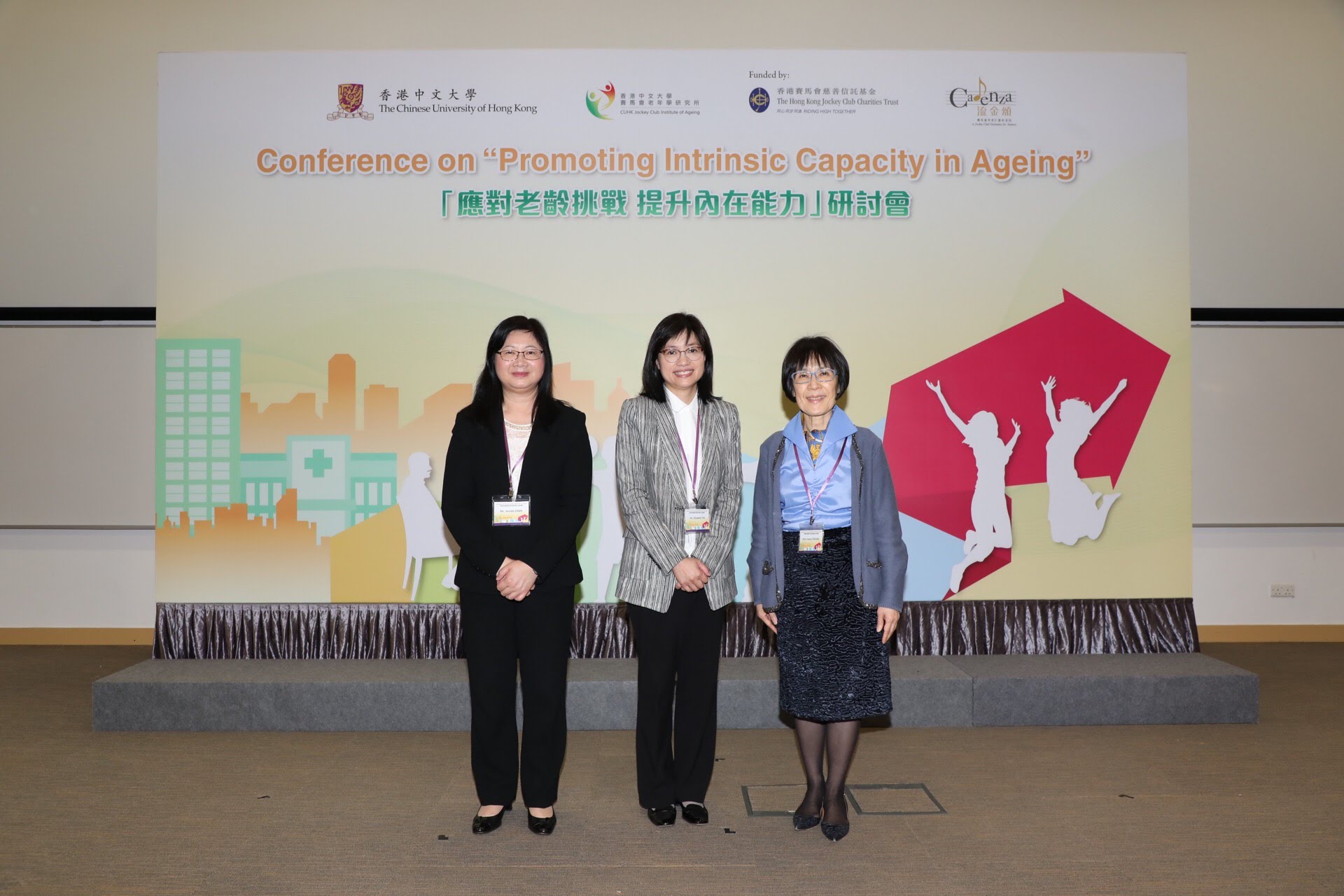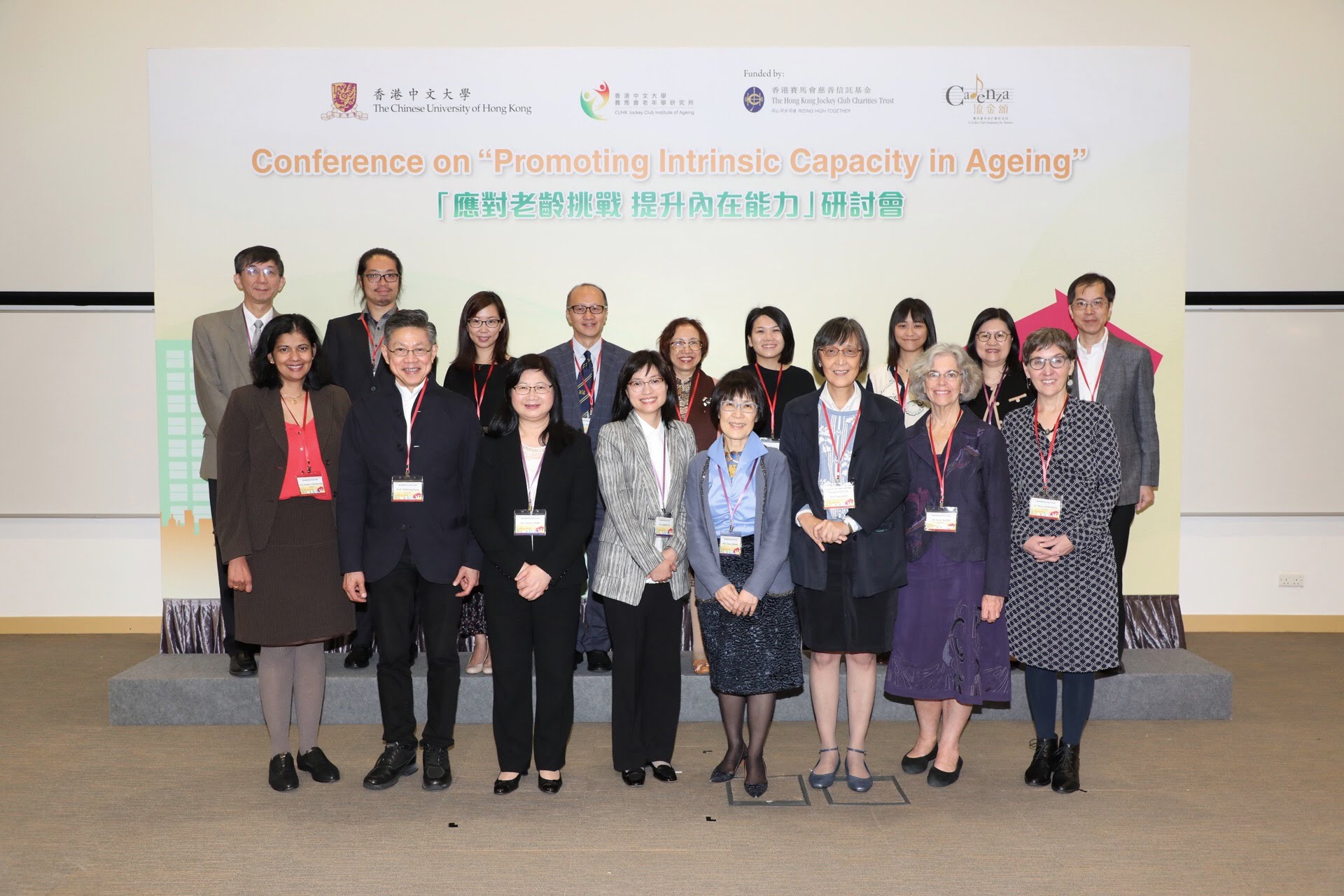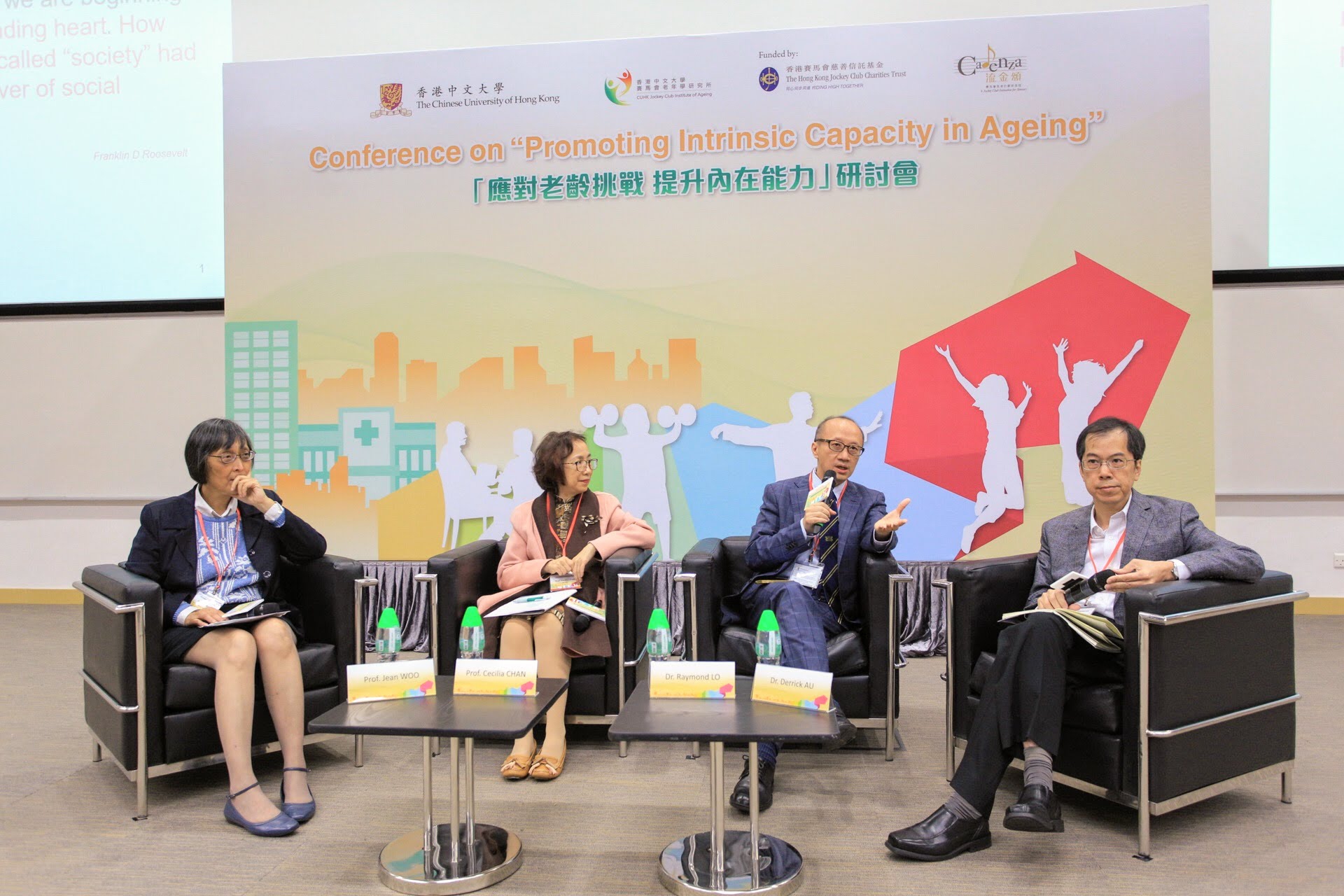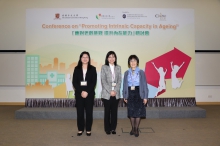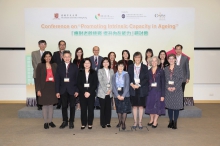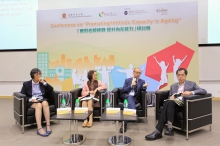CUHK
News Centre
CUHK Jockey Club Institute of Ageing Conference holds a Conference on ‘Promoting Intrinsic Capacity in Ageing’
The Jockey Club Institute of Ageing (IOA) at The Chinese University of Hong Kong (CUHK) held a conference on ‘Promoting Intrinsic Capacity in Ageing’ today (4 Dec), with the aim of enabling experience sharing and discussion on various aspects of the theme. The conference was well attended by over 300 prominent scholars from around the world as well as representatives from renowned non-profit organizations.
The opening ceremony of the conference was officiated at by Ms. Elizabeth TSE, Permanent Secretary for Food and Health (Health), the HKSAR Government; Ms. Imelda CHAN, Head of Charities (Grant Making – Elderly, Rehabilitation, Medical, Environment & Family) of The Hong Kong Jockey Club (HKJC); and Prof. Fanny CHEUNG, Pro-Vice-Chancellor of CUHK.
Promoting intrinsic capacity in ageing is one of the World Health Organization strategies for tackling the challenge of ageing around the world. In her welcoming remarks, Prof. Fanny Cheung said, ‘The conference provides a platform for veteran practitioners and academia to share their insights into topics including end-of-life care, an age-friendly environment, frailty, and age-friendly hospitals. As ageing is an important theme in our University’s strategic research plan, as well as our commitment to service, the establishment of IOA is a well-placed focal point for synergizing the cross-cutting interdisciplinary approach so that we can address ageing issues from a holistic perspective.’
Ms. Imelda Chan said, ‘The Club is putting a high priority on helping our city do more to cater for the needs of its senior citizens, and has made elderly services one of its strategic focus areas. It is our belief that the elderly sector needs to shift towards a more preventive approach – in particular by promoting active, healthy, and more socially-inclusive ageing, which extends the healthy years of the elderly and delays the onset of disabilities and their need for care. We thank IOA for their efforts in helping build Hong Kong into a more age-friendly city.’
Addressing the conference, Ms Elizabeth Tse noted that ‘Our city enjoys among the highest life expectancy in the world, and the population projection results announced in September suggest that population ageing will be most rapid in the coming 20 years. There is a pressing need to enhance the overall capacity of our healthcare system. To this end, the Government has substantially increased the resources allocated to public healthcare services over the years to enhance various services and support benefitting the elderly, including on primary care, dementia, secondary healthcare and discharge support, palliative care, etc.’
The topics covered in the conference included: Quality of End-of-Life Care in Hong Kong; High-Quality Serious Illness Conversations; Ethics for Ageing Societies; Trajectories of Frailty among Chinese Older People in Hong Kong; Impacts of the Physical Environment on Elderly Health and Well-Being in High-Density Cities; What Does Age Friendliness Mean to Older People: Perspectives from Rural China and Urban Hong Kong; and Hospitals as Healing Environments for Older People. Speakers included Prof. Yeoh Eng Kiong, Director, The Jockey Club School of Public Health and Primary Care; Dr. Susan Block, Co-Director, Harvard Medical School Center for Palliative Care and Director, Serious Illness Care Programme, Ariadne Labs; Dr. Nancy Berlinger, Research Scholar, The Hastings Center; and Prof. Renuka Visvanathan, Director, Adelaide Geriatrics Training and Research with Aged Care Centre, University of Adelaide.
Prof. Jean Woo, Director of CUHK Jockey Club Institute of Ageing and Emeritus Professor of the Department of Medicine and Therapeutics at CUHK added, ‘To promote an age-friendly city, the Institute has commenced the “Jockey Club Age-friendly City Project” in five districts, namely Kwai Tsing, North District, Sai Kung, Sha Tin and Tai Po. The Institute has also launched a casebook and provided training for the healthcare professional in end-of-life care service in the “Jockey Club End-of-Life Community Care Project”. It aims at improving the quality of end-of-life care, as well as raising public awareness.’
The opening ceremony of the conference was officiated by Ms. Elizabeth TSE (middle), Permanent Secretary for Food and Health (Health), the HKSAR Government; Ms. Imelda CHAN (left), Head of Charities (Grant Making – Elderly, Rehabilitation, Medical, Environment & Family) of The Hong Kong Jockey Club; and Prof. Fanny CHEUNG, Pro-Vice-Chancellor of CUHK.
(From left) Prof. Jean Woo, Director, CUHK Jockey Club Institute of Ageing; Prof. Cecilia Chan, Project Director, Jockey Club End-of-Life Community Care Project and Professor, Department of Social Work and Social Administration, The University of Hong Kong; Dr. Raymond Lo, Honorary Clinical Professor, Department of Medicine & Therapeutics, CUHK and Consultant and Chief of Service, Palliative Care Services New Territories East Cluster, Hospital Authority; and Dr. Derrick Au, Director, CUHK Centre for Bioethics; exchange their views in a panel discussion section.


